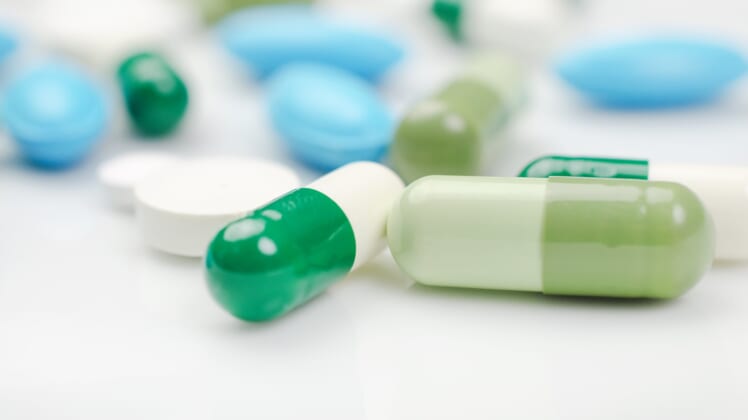
Kidney stones aren’t as harmful as some conditions. But they’re not particularly pleasant either. Now, new research suggests the reason many people get them is because of antibiotics.
Three decades ago, your parents or grandparents might have been the ones suffering these nasty stones.
However, lead researcher Gregory E. Tasian says that kidney stone rates have risen tremendously. In fact, the stones are now 70 percent more prevalent than they were 30 years ago, reports ScienceDaily.
Tasian, who is a pediatric urologist from the Children’s Hospital of Philadelphia, says that women and adolescents have held the highest increase.
Until now, researchers have understood little about why that’s been the case. However, the antibiotic research sheds some new light on this subject.
Antibiotics Might Be Causing Kidney Stones.
According to Medscape, the researchers studied the relationship between antibiotics and kidney stones by looking over data from The Health Improvement Network (THIN).
The network is a registry of nearly 14 million patients in the United Kingdom, representing over 600 general physicians’ practices. The data spanned between the years 1994 and 2015. It included over 25,000 patients with kidney stones.
Using this large registry, the researchers looked for patients who had taken antibiotics recently and which kinds they took.
They matched the kidney stone patients with over 250,000 controls to validate any associations found.
What they found was interesting. Patients who had taken antibiotics from 1 of 5 different classes showed a higher risk of getting kidney stones. These antibiotics were taken within 3–12 months before the kidney stones occurred.
At the same time, researchers realized that younger patients had the highest association between antibiotics and kidney stones.
According to coauthor Michelle Denburg, who is a pediatric nephrologist, children receive more prescriptions for antibiotics than other age groups.
This could explain the reason these children are getting more kidney stones when the condition used to be a rare occurrence.
Stop Overusing Antibiotics.
Still, why would a medicine that’s known for killing bacteria affect kidney stones?
The association may be related to the amount of healthy gut bacteria people have, says Medscape. According to them, the gut bacteria in kidney stone patients have shown to be “less diverse” than healthy individuals.
According to the Centers for Disease Control and Prevention, at least 30 percent of outpatient antibiotic prescriptions are unnecessary.
In fact, the total amount of inappropriate prescriptions could reach as much as 50 percent. These people didn’t need to take antibiotics at all.
The main reason doctors and patients shouldn’t overuse antibiotics is to prevent bacterial resistance. Some bacteria can form protection against the medicine if it survives the antibiotic use.
You should never take an antibiotic for a viral infection since antibiotics can only help bacterial infections. The Mayo Clinic lists these conditions to avoid using antibiotics for:
- Colds
- Most coughs
- Flu
- Bronchitis
- Some ear infections
- Some sinus infections
- Stomach flu
Taking antibiotics for these conditions can result in more harmful bacteria that’s resistant to medicine.
In turn, these bacteria can lead to longer recovery times for illness and more doctor visits. They may also play a part in illnesses such as inflammatory bowel.
If you do need antibiotics, you can combat the bacteria-killing effects by promoting healthy gut bacteria. First, eat fermented foods such as sauerkraut, kefir, some yogurts and fermented vegetables.
You may opt for a probiotic supplement as well. However, be sure to use a quality supplement since not all probiotics are the same.
The main takeaway from this new antibiotic research?
Using this medicine unnecessarily can lead to a lot of problems, including unbalanced gut bacteria and kidney stones. Both doctors and patients should take measures to decrease using antibiotics, period.
This research was published in the Journal of the American Society of Nephrology in May 2018.
